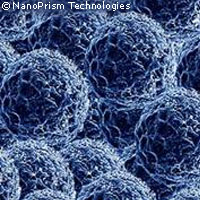Nanotechnologies and the environment - more support needed
Nanotechnologies have great potential to help us address a range of environmental challenges. However, policies are needed to promote the development of nanotechnologies, and funding is needed to carry out research into the benefits and risks of these new technologies for both human health and the environment. These were the main messages coming out of a session on nanotechnology and the environment held during Green Week, an annual event organised by the European Commission. Opening the session, Ottilia Saxl of the Institute of Nanotechnology gave some examples of how nanotechnology could address environmental challenges, for example through better solar cells, the replacement of hazardous chemicals, pollutant extraction / prevention technologies and pollution monitoring. 'The technologies exist - but we need public policies to support them,' she noted. Professor Susan Stipp of the University of Copenhagen's Nano-Science Centre is using nanotechnology to address one of the biggest challenges facing humanity, namely climate change. She is working on a novel solution to extract CO2 from the atmosphere and store it by turning it into rock, which she argues is more sustainable than trying to store the gas underground. 'These are temporary solutions,' she said of the conventional CO2 storage options. 'It comes back again!' Over time, CO2 dissolved in rainwater slowly eats away at rocks naturally, dissolving solids such as calcium. The dissolved CO2 and calcium combine to form calcium carbonate particles. She is looking at ways to accelerate this process, and thereby store the carbon over geological time. She is currently carrying out small scale experiments in Iceland using basaltic sand, which is particularly well suited to the process. 'But we need more money for this research!' she emphasised. Chemical company BASF is also devising nanotechnology solutions to the energy problem, as Professor Ruediger Iden, Senior Vice-President of BASF for Polymer Research explained. He cited the example of paints with nanoparticles in them. These pick up less dirt than conventional paints, and so need cleaning and repainting less often. This saves energy on cleaning and repainting, and the production process also requires less energy than for conventional paints. Nanotechnologies also offer promising solutions to the problem of hydrogen storage, which is currently holding back further development of hydrogen-based energy technologies. In the field of energy saving, nanofoams have excellent insulating properties. Nanotechnologies also have the potential to solve environmental problems in the developing world, such as waste water treatment, energy storage and pest control to name a few. However, questions remain as to whether the developing world will have access to these technologies. 'What is needed is political will,' commented Del Stark of the European Nanotechnology Trade Alliance, which works to promote the responsible development of nanotechnologies. Professor Iden was more optimistic, pointing out that many African countries are already getting involved in international fora on nanotechnology standards. The safety concerns of nanotechnologies also need to be addressed. However, this is a difficult task, as different-shaped nanoparticles of the same substance may have very different properties. 'The problem is we don't know how nanoparticles act in the human body or the environment,' commented Paul Borm of Zuyd University in the Netherlands. 'We need more data.' On safety, it was noted that the OECD (Organisation for Economic Co-operation and Development) is developing testing guidelines for nanomaterials. On research funding, the panel welcomed the fact that the Seventh Framework Programme was funding research into both the benefits and risks of nanotechnologies. Over the period 2007-2013, this research will be funded to the tune of €3.5 billion.



